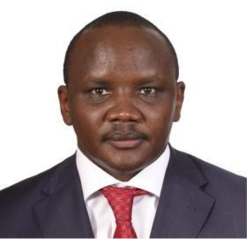Digital Transformation for all: An Information Society that respects and protects human rights
African Union, European Union and UN Office of the High Commissioner for Human Rights
Session 263
Human Rights Due Diligence as a tool to advance responsible technology use and governance
The international community is increasingly grappling with digital technologies and their impacts on people and planet. The Geneva Declaration of Principles declared the common desire and commitment to building a people-centred, inclusive and development-oriented Information Society, grounded in respecting and fully upholding the Universal Declaration of Human Rights[1]. The WSIS+10 review recognized the role of human rights in the information society[2]. Human rights present a pathway that can be used to enable the responsible and inclusive development and deployment of digital technologies whilst also identifying and addressing risks. The UN General Assembly called upon governments, the private sector, and other stakeholders to use human rights due diligence (HRDD) as a concrete way forward to reduce risks while enabling the benefits of digital technologies[3] while the Global Digital Compact (GDC) has integrated human rights due diligence as a critical approach to preventing and addressing any adverse impact on human rights[4].
In line with the UN Guiding Principles on Business and Human Rights (UNGPs), States have a duty to protect human rights, also applying to their own use of technology, and companies have a responsibility to respect human rights, including with regard to digital products and services. In this regard, human rights due diligence is introduced by the UNGPs as a process to identify, prevent and mitigate actual and potential adverse impacts on human rights, including regarding risks stemming from or being linked to digital products and services. In that regard good practices emerging from States and companies on carrying out human rights due diligence have informed policy making in various countries and inter-regional fora. In May 2024, the United Nations Executive Committee adopted Guidance for Human Rights Due Diligence for Digital Technology Use for the UN System. In the private sector, the UNGPs are driving the integration of human rights due diligence across the tech life cycle, advancing the implementation of the Global Digital Compact and the outcomes of the WSIS[5].
This interactive session will highlight the benefits of embedding human rights due diligence for the development and deployment of digital technologies, including addressing risks, and ways in which it can strengthen WSIS framework building on GDC and protect human rights.
[1] https://www.itu.int/net/wsis/docs/geneva/official/dop.html
[2] A/RES/70/125
[3] A/RES/78/213
[4] https://www.un.org/global-digital-compact/sites/default/files/2024-09/Global%20Digital%20Compact%20-%20English_0.pdf
[5] https://www.ohchr.org/en/business-and-human-rights/b-tech-project





.jpg?maxwidth=250)

-
 C4. Capacity building
C4. Capacity building
-
 C5. Building confidence and security in use of ICTs
C5. Building confidence and security in use of ICTs
-
 C6. Enabling environment
C6. Enabling environment
-
 C10. Ethical dimensions of the Information Society
C10. Ethical dimensions of the Information Society
-
 C11. International and regional cooperation
C11. International and regional cooperation
Human rights are cross-cutting across all WSIS Action Lines, however this event would contribute particularly to WSIS Action Lines 4, 5, 6, 10 and 11.
AL4: This event would feature experiences of conducting human rights due diligence (HRDD) across different sectors, therefore supporting capacity building on using HRDD as tool in terms of the life cycle of technologies.
AL 5: Human rights due diligence helps to identify risks and develops actions to address such risks, therefore supporting the building of confidence and security in the use of ICTs.
AL 6: Human rights due diligence would provide an enabling environment by analysing risks and potential negative impacts and addressing those.
AL 10: Human rights due diligence would facilitate an analysis of human rights impacts, contributing towards the ethical dimensions of the information society.
AL11: This event brings together experiences across different regions and looks at how the UN system, especially OHCHR can further support HRDD going forward as part of international and regional cooperation.
-
 Goal 5: Achieve gender equality and empower all women and girls
Goal 5: Achieve gender equality and empower all women and girls
-
 Goal 9: Build resilient infrastructure, promote sustainable industrialization and foster innovation
Goal 9: Build resilient infrastructure, promote sustainable industrialization and foster innovation
-
 Goal 10: Reduce inequality within and among countries
Goal 10: Reduce inequality within and among countries
-
 Goal 16: Promote just, peaceful and inclusive societies
Goal 16: Promote just, peaceful and inclusive societies
Human rights are cross-cutting across all SDGs, however this event would contribute particularly to SDG 5, 9, 10 and 16.
SDG5: Human rights due diligence includes a gender dimension as part of human rights impact assessments.
SDG 9: Conducting HRDD enhances the likelihood that innovations will benefit people and limit harms therefore contributing to fostering innovation.
SDG 10: HRDD helps identify inequalities, bias or discrimination that may result from technologies and mitigate those inequalities.
SDG 16: HRDD can contribute to accountable and inclusive institutions by understanding impacts technologies and promoting transparency.
- Objective 3: Foster an inclusive, open, safe and secure digital space that respects, protects and promotes human rights
Human Rights Due Diligence for Digital Technology Use - Guidance of the Secretary-General | OHCHR
https://x.com/_AfricanUnion
https://x.com/EUatUN
https://x.com/EU_UNGeneva
https://x.com/UNHumanRights